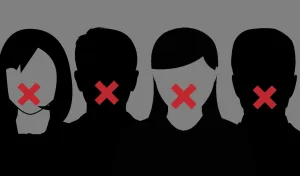September 19th was Paulo Freire’s birthday. Freire and I worked together for fifteen years, which I consider one of the most enlightening periods of my life. We co-edited a book series and along with Donaldo Macedo got many of Freire’s books translated and published in the English-speaking world. He wrote the preface for my second book, Theory and Resistance in Education, and we collaborated together until he died. There have been and will be many celebrations. Too many of them will treat him as iconic rather than as the revolutionary he actually was. In doing so, they will speak of Freire with a kind of depoliticizing reverence that we often associate with the empty praise reserved for dead celebrities. Ivy League schools will put out statements celebrating his work offering themselves as paragons of radical change, which of course is the opposite of what they believe in. This diversion is understandable at a time of manufactured ignorance, the worship of celebrity culture, and an age in which historical memory becomes dangerous and dissent a curse. Freire was a revolutionary whose passion for justice and resistance was matched by his hatred of neoliberal capitalism and loathing for authoritarians of all political stripes. Put simply, he was not merely a public intellectual but also a freedom fighter. The current attacks on him in Brazil by the neo-fascist Bolsonaro make clear how dangerous his work is even today.
One of Freire’s most important contributions was his politicization of culture. He viewed culture a terrain of struggle that both reflected and deployed power. He rejected the vulgar Marxist notion that culture was simply a reflection of economic forces. Not only did he connect culture with social relations that ranged from producing and legitimating class warfare, ecological destruction, and various forms of privilege, but he also understood that culture was always related to power and was an enormously influential force. This was especially true in the age of social media with its power to define diverse modes of inclusion, legitimate consent, produce specific forms of agency, and reproduce unequal relations of power both within and outside of nation states. He strongly emphasized the role of language and values in struggles over identities and resources and how they worked through different organizations and public spheres such as schools, the media, corporate apparatuses, and other social spheres. His work on literacy focused on how neoliberal cultural practices put certain forms of commercialized agency in place, defined and circumvented public space, depoliticized people through the language of commands, while commodifying and privatizing everything. Culture and literacy for Freire offered people the space to develop new modes of agency, mass resistance, and emotional attachments that embraced empowering forms of solidarity. For Freire, the terrains of culture, literacy, and education were the terrains on which individuals acquire consciousness of their position, and the willingness to fight for dignity, social justice, and freedom. For Freire, culture was a battlefield, a site of struggle, and he recognized in the manner of Gramsci that every relationship of domination was “pedagogic and occurs amongst the different forces of which it is composed.”
Freire first and foremost believed that education was linked to social change and that matters of consciousness and identity were integral to making pedagogy central to politics itself. For Freire, education and schooling were part of a larger struggle against capitalism, neoliberalism, authoritarianism, fascism, and the depoliticization and instrumentalization of education. Direct action, political education, and cultural politics defined for him both new strategies of resistance and new understandings of the relationship between power and culture and how it shaped matters of identity, values, and one’s understanding of the future. Pedagogy and literacy were political because they were connected to the struggle over agency, ongoing relations of power, and the preconditions for connecting knowledge and values to the development of active and engaged critical citizens. Freire’s great contribution was to recognize that domination was not only economic and structural but also pedagogical, ideological, cultural, and intellectual and that matters of persuasion and belief were crucial weapons for creating engaged agents and critical subjects. He also refuted the easy escape route for cynics who equated and collapsed domination and power. Resistance was always a possibility and any politics that denied the latter erred on the side of complicity with the most heinous crimes, however unrecognized. Freire was a transformative public intellectual and freedom fighter who believed that educators had an enormous responsibility to address important social and political problems, to tell the truth, and to take risks, however inconvenient the consequences. Civic courage was essential to politics, and he embodied the best of that conviction.
In making education central to politics, Freire connected ideas to power, and critical consciousness and literacy to intervening in the world in the fight for economic, social, and racial justice. He never separated the massive suffering and constraints imposed by inequality from the sphere of politics and in doing so connected the conditions, however specific, for resistance to addressing the constraints that bore down on people’s lives. Freire believed that everyone had the capacity to be an intellectual, to think critically, to make the familiar strange, and to fight individually and collectively against disimagination machines and the zones of ethical, political, and social abandonment that transformed democracies into updated versions of the fascist state.
His work was not about methods, but about fostering individual and social change in a way that gives voice to the voiceless and power to those considered disposable. Freire was a freedom fighter, who believed deeply in a future in which radical democracy was possible. He was a fearless utopian for whom hope was not simply an idea but a way of thinking otherwise in order to act otherwise. Freire’s educational and political work was rooted in an ethical ideal and sense of responsibility that is under attack today, which testifies to its importance and the need to defend it; there is also the need to prevent it from being appropriated by ruling elites; in addition, there is a need to extend it to new economic, cultural, and social circumstances for which it is desperately needed in the fight against the fascist politics emerging across the globe. Freire believed that no society is ever just enough and that the struggle against injustice is the precondition for radicalizing values, fighting institutional oppression, and embracing a global politics of shared democratic values. Civic literacy for him was a weapon for awakening consciousness, emboldening civic action, and closing down the lure of a fascist politics. Freire was dangerous and rightly so at a time when history is being cleansed, those considered disposable are both expanding and losing their lives, and the need for an anti-capitalist consciousness and mass social movement more crucial then ever. Freire’s spirit and politics are not to be celebrated but emulated.
(Henry A. Giroux currently holds the McMaster University Chair for Scholarship in the Public Interest in the English and Cultural Studies Department and is the Paulo Freire Distinguished Scholar in Critical Pedagogy. Courtesy: CounterPunch.)




